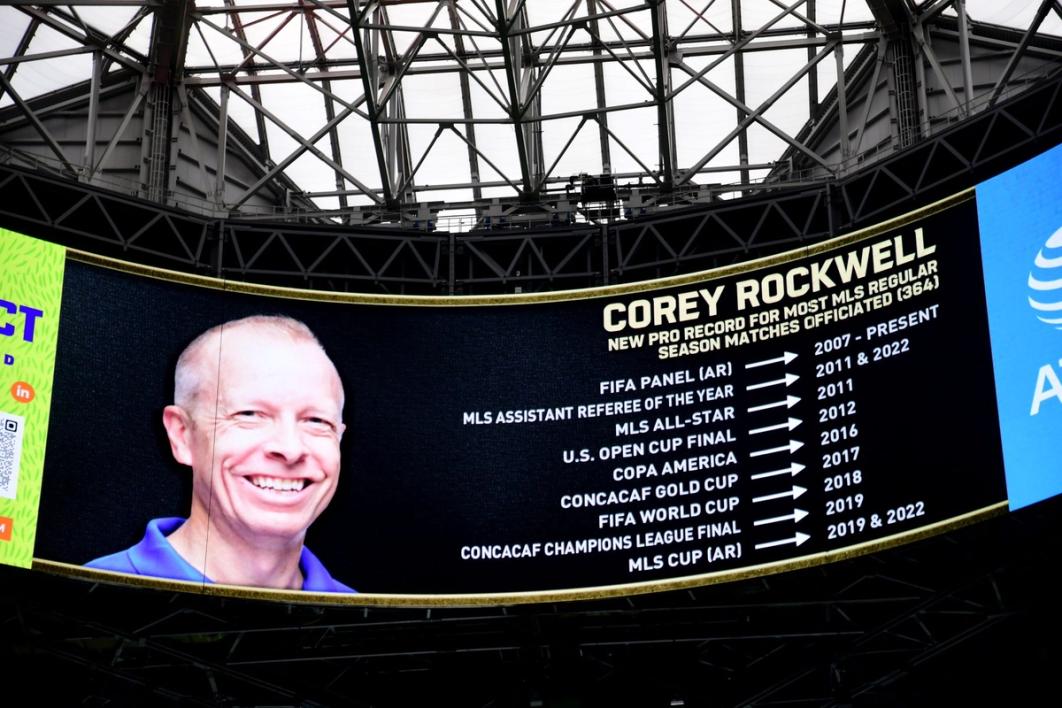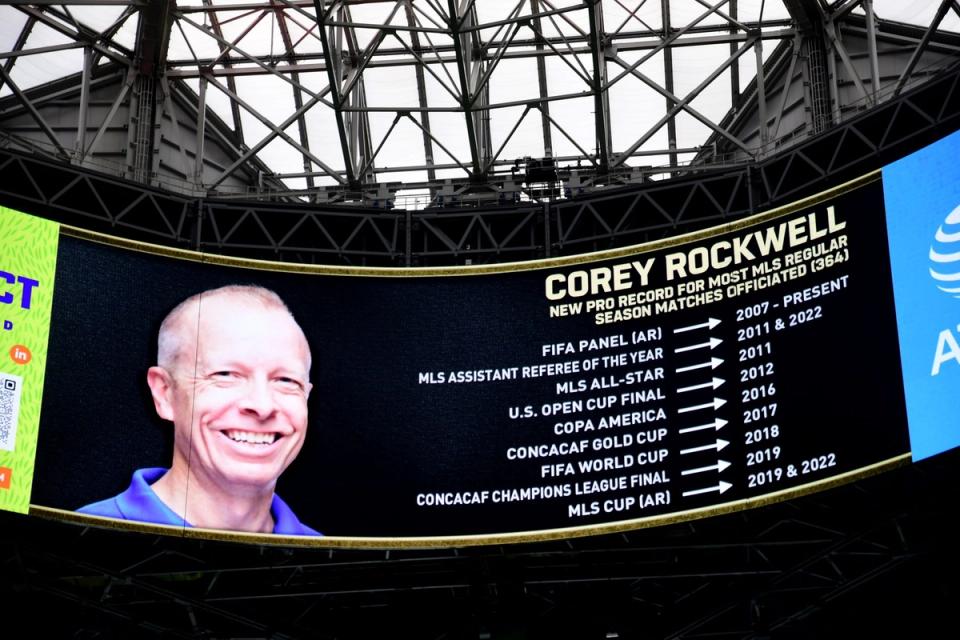Corey Rockwell Reflects on Referee Journey After 17 Years on the FIFA Panel
Rockwell credits Federation’s mentorship of officials for helping him along the way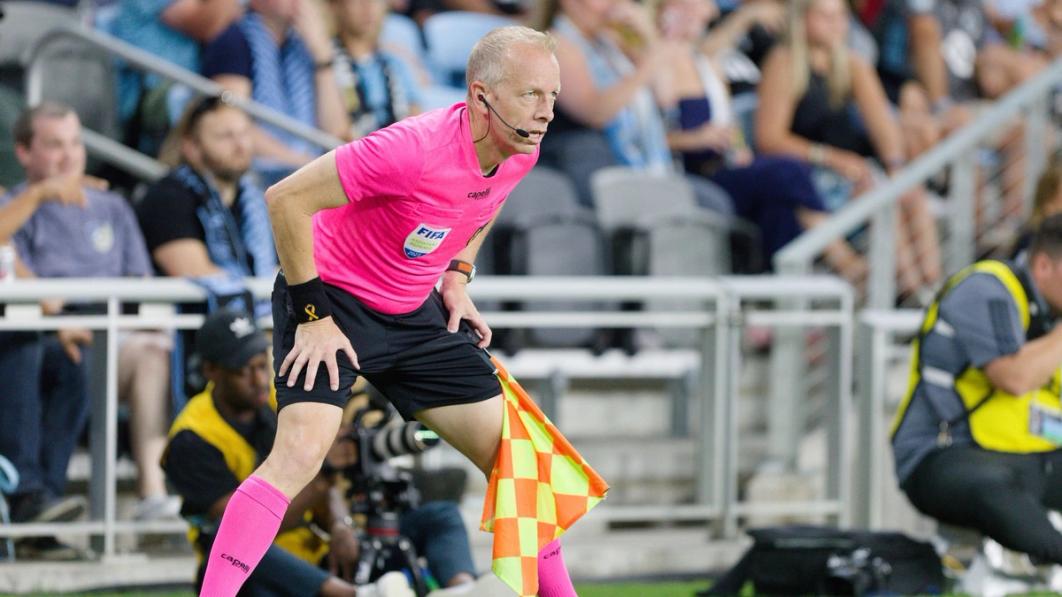
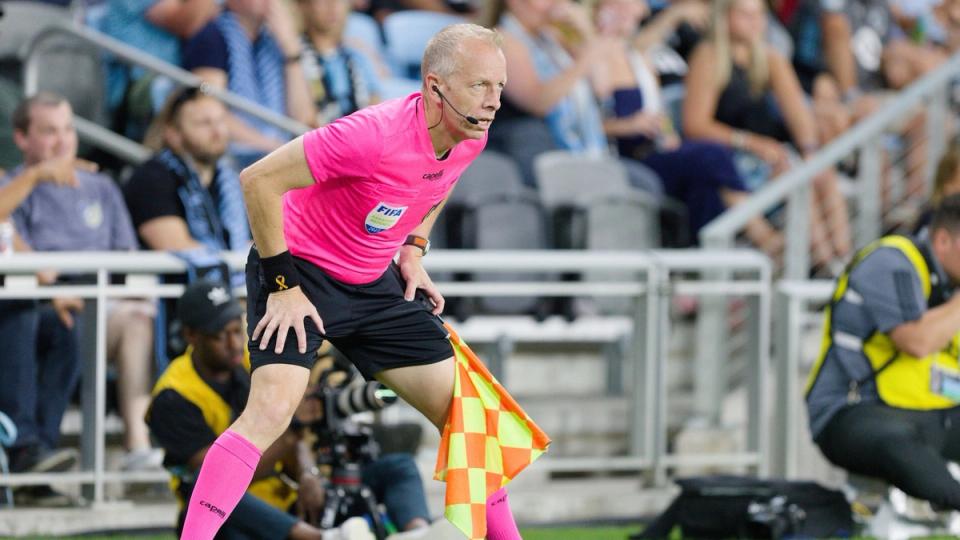


Corey Rockwell’s first international match as an assistant referee with a FIFA badge was at Estadio Azteca, in front of 90,000+ Mexico fans for a World Cup qualifier against Jamaica. It’s an intimidating atmosphere, but Rockwell’s previous experience prepared him for the moment.
A World Cup qualifier in Mexico City is charged, but it pales in comparison to a U-8 soccer match between rival clubs in Powder Springs, Georgia.
“I was in either in my first or second year refereeing and the parents were yelling at each other, yelling at me, and yelling at the players,” Rockwell recalled to ussoccer.com recently. “Apparently there was a big rivalry in Powder Springs, Georgia, between two U-8 teams, and I just got so fed up with it, I just told all the parents to leave or I was leaving.
“I told every single parent of both teams to go to the top of the field, work it out and we ended up refereeing the rest of the game very quietly with just coaches and players, and it was so nice. I don't know what the parents did. But they were 100 yards away at the top of the hill, still battling it out while we had a nice quiet game out there.”
To get from the U-8 fields of Georgia to the FIFA Club World Cup Final and everything in between, Rockwell’s referee journey was shaped and molded in part by U.S. Soccer’s referee training program. It allowed him to go from refereeing to earn a little extra spending money to a life-long career, to competing against some of the best officials in the United States and around the world.
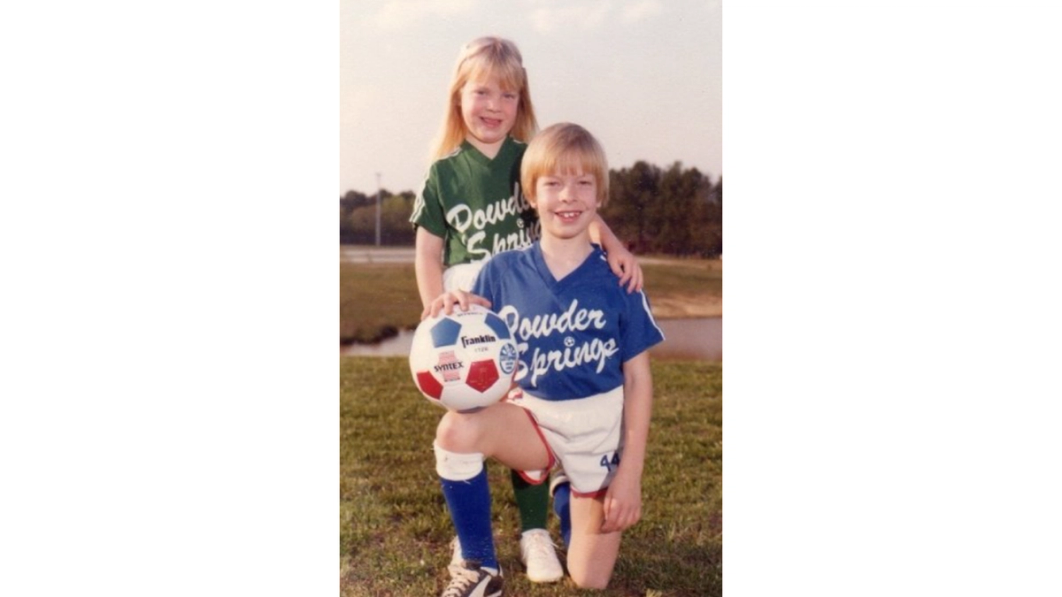
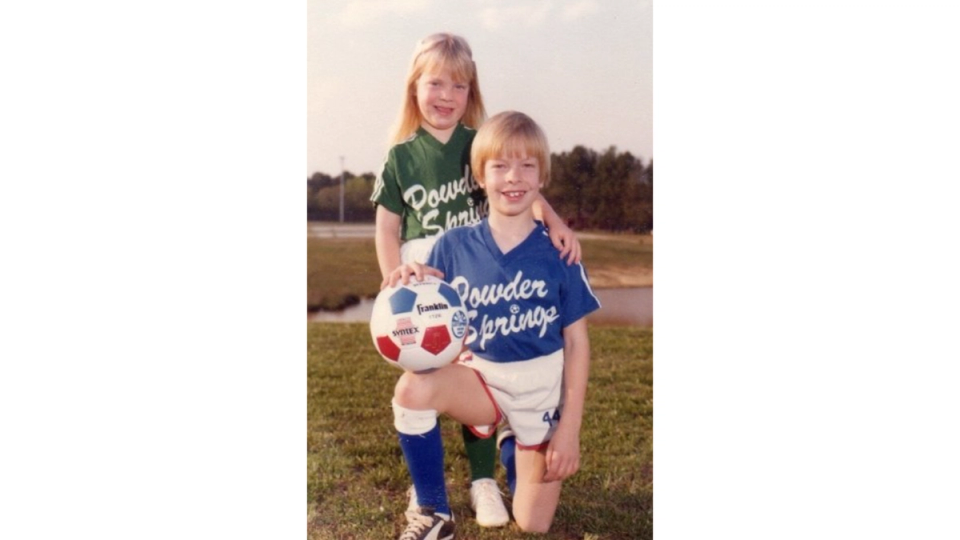
“I think U.S. Soccer does a great job of encouraging not just the improvement aspect, but also helping you ascend to the next level,” he said. “They're definitely reminding you that there's a lot of people trying to get to that next level. But they do well to make it a healthy competition.”
Rockwell’s refereeing journey began when he was just 16, refereeing local amateur matches and tournaments, trying to work as many games as he could. On some weekends, you could find him on the pitch for six matches in a day.
At that point, his only training was what was mandated by the state association, which amounted to about 30 hours of classroom work. But he loved it, sitting on the edge of his seat as veteran referees traded war stories of their previous experiences.
When he was good enough to work state tournaments, he had his first experience working with a referee assessor, which he described as “pretty cool.” But then he started officiating regional events.
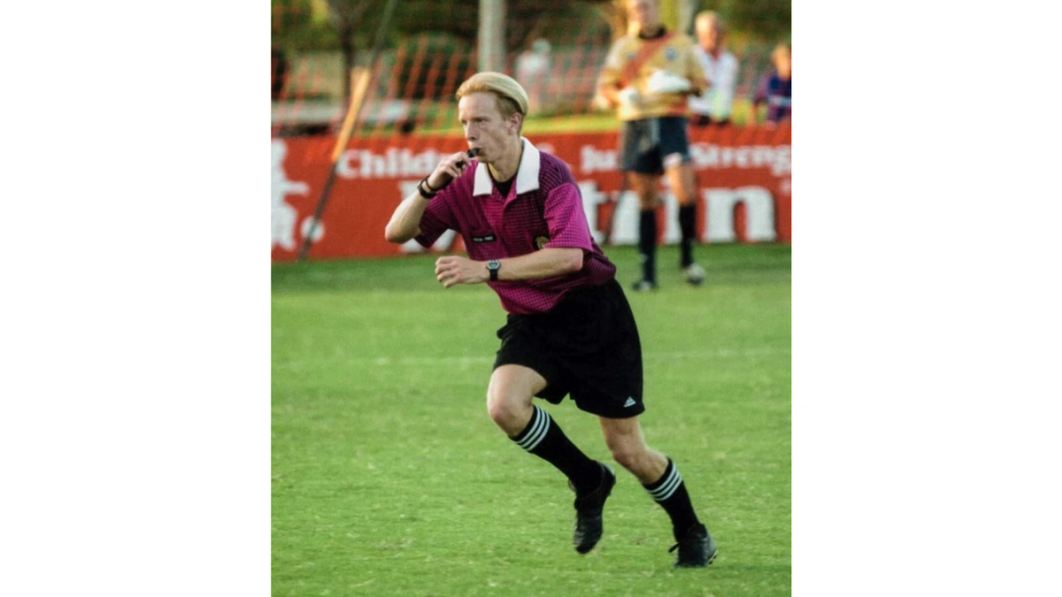
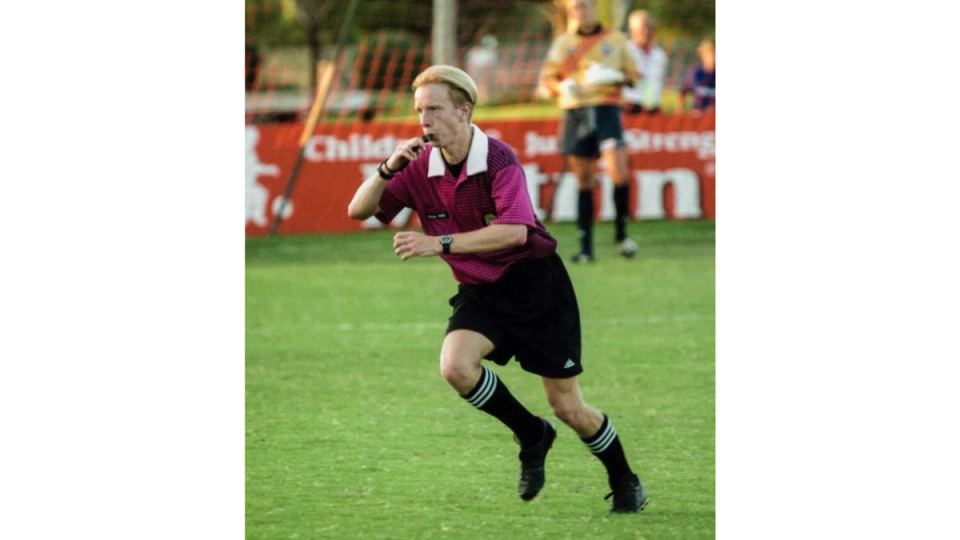
“That's when I really had exposure to U.S. Soccer because, my gosh, there's this huge tournament with hundreds of referees and all these youth players,” he said. “And I'm getting feedback on every single game I'm doing, whether it was as an assistant or center ref and it was nothing like I'd ever experienced before.
“And it was the first time I was competitive in my refereeing because at youth regionals, you're competing against other states, your own state, you're trying to get a semifinal game, a final game, a playoff game. You're trying to do really well. So that's the first time that I was exposed to U.S. Soccer’s teaching and assessing and what it takes to get to the next level.”
For the first time in his young career, Rockwell had a third party watching and assessing his officiating. And instead of working multiple matches and just kind of figuring things out, he received specific feedback to help improve his officiating. Some of it was as subtle as how he held his flag as an assistant referee (AR).
“I was running with my flag just flapping in the air,” he said. “And they told me, hey, use a different way to hold your flags. You look silly with it waving up and down as you're running down the line. Try a different holding technique. Let the flag rest in between your two fingers and allow gravity to naturally keep the flag down. It sounds so minor, but it affected how I hold a flag for the next 30 years.”
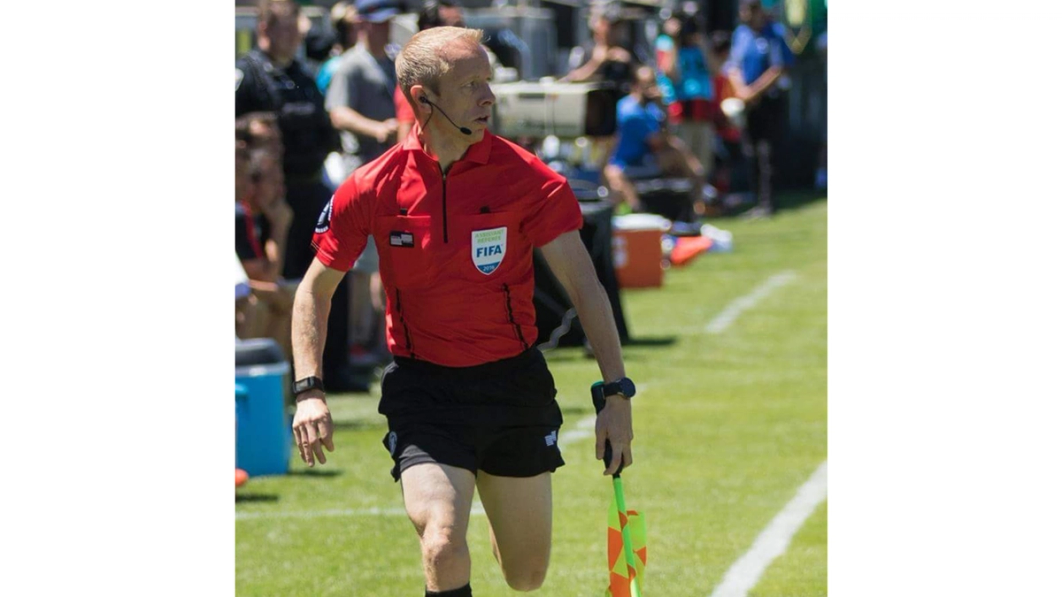
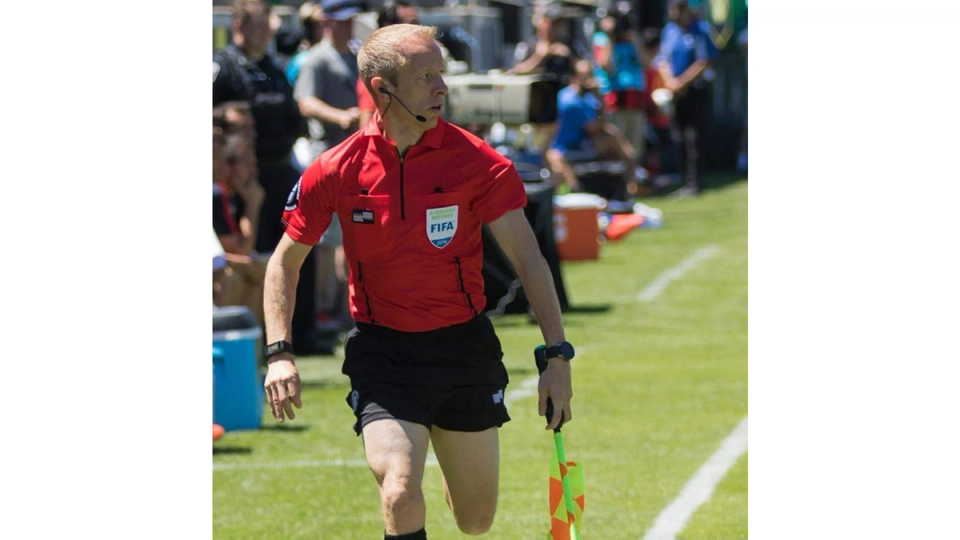
The active critiques from U.S. Soccer staff, combined with a more competitive mindset toward officiating, helped Rockwell become a sharper referee and earn assignments to more important matches at higher levels.
“There was a healthy competition,” he said. “And then once you got an important game, you say, ‘Okay, I want to show them that they made a good decision by putting me on this game, whether it was a U-12 youth line or whatever assignment they put me on. I wanted to try to get to the next level and improve. And I still try to prove them right to this day with the assignments I have now. Hey, here's a reason why you put me on here.”
Despite the support system in place for Rockwell, and his need to compete to reach higher and higher levels, he would still have the occasional poor performance. And he noted U.S. Soccer’s response to it.
“It was two red cards, 12 yellow cards, you know, one of those chased-off-the-field type games,” he said. “U.S. Soccer could've said, ‘Well, that’s that, or we need to put him on the bench for a while.’ And to their credit, they knew this was a blip. And they react with, ‘We don't want this on his mind for a long time. Let's get him back out there as quickly as we can.’ And I think that really helped.”
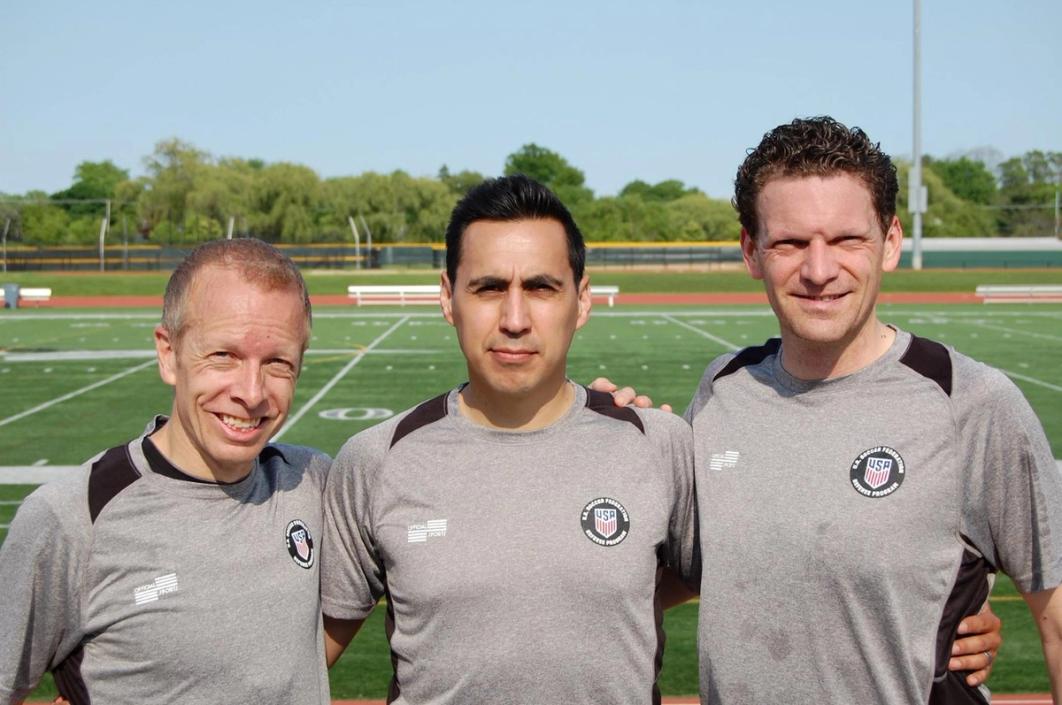
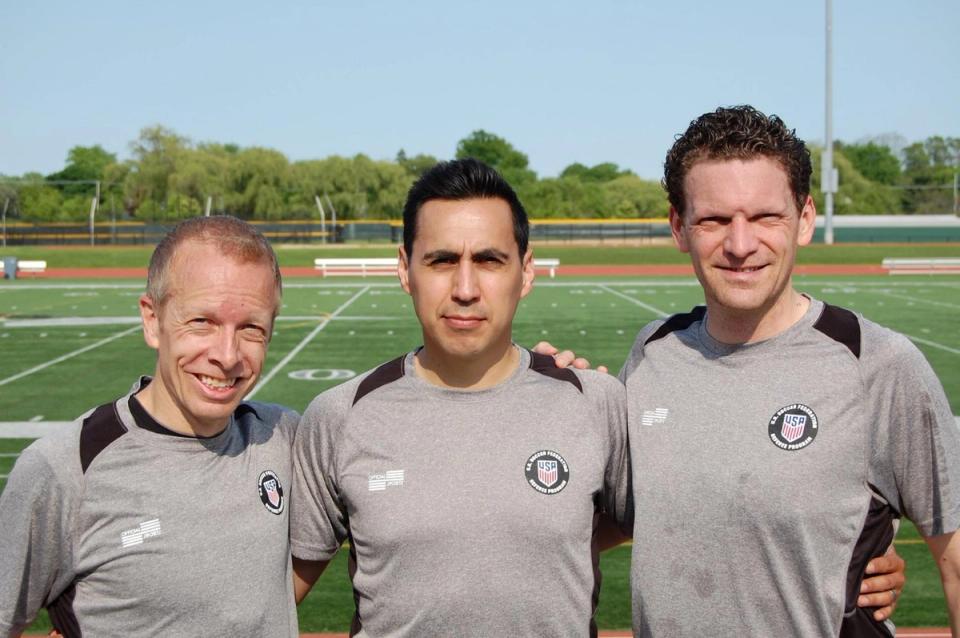
Rockwell’s hard work paid off. He made his professional debut as a Major League Soccer assistant referee in 2005. Two years later he was named to the FIFA panel, allowing him to officiate international competitions. Since then, in addition to regularly officiating MLS matches, he’s worked the Lamar Hunt U.S. Open Cup Final (2012), Copa America Centenario (2016), Concacaf Gold Cup (2017), FIFA World Cup (2018), FIFA Club World Cup Final (2018), the second leg of the CONCACAF Champions League Final (2019), and two MLS Cup finals (2019, 2022).
His crew for the 2018 Club World Cup Final, a 4-1 win for Real Madrid against Al-Ain, was the first all-American crew to work on the field in a FIFA championship match.
He and the rest of the referee crew nailed it.
“We get back to the locker room, we hug, we have a bunch of our FIFA administrators come in. he said. “They're all smiling. So we knew with the bosses who are coming into our locker room, smiling and hugging, this was a great sign. Once we got back to the hotel, there was a nice little party waiting for us where it was the end of the tournament. It was the last game. We could all truly celebrate and smile and really enjoy that moment.”
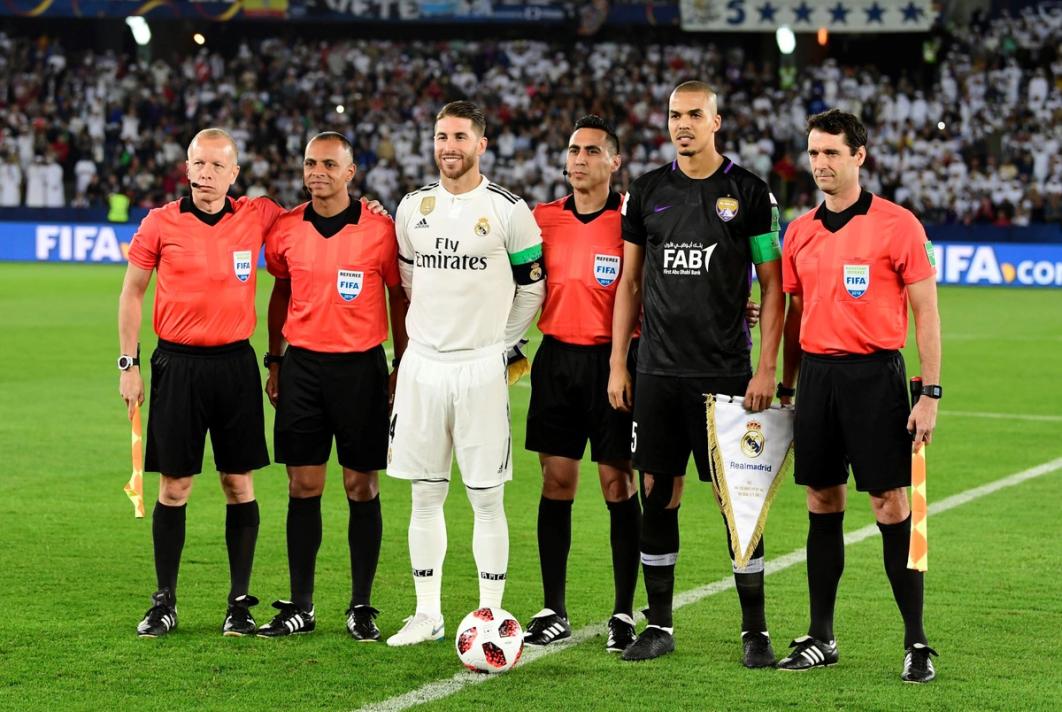
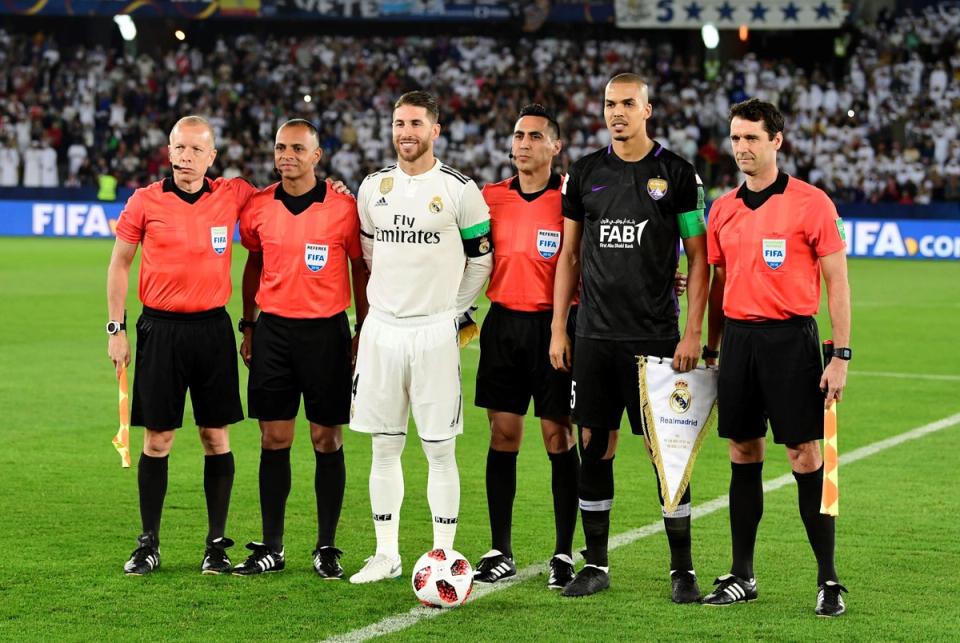
Rockwell has also received accolades from his work in MLS. He’s twice been voted as the assistant referee of the year, most recently in 2022 (his first was in 2011). It’s his competitiveness, instilled in him from those first U.S. Soccer regional tournaments, that keeps him driven to be among the best officials in the league.
“It does validate that my effort, and whoever wins the award, our efforts are being recognized, which is fantastic,” he said. “And here I am, 49 years old, winning and still getting MLS Cup. I continue to have that drive, that nervousness and that energy to be out there. So I hope to keep going for a few more years. It's nice and I think I still have that competition piece in me.”
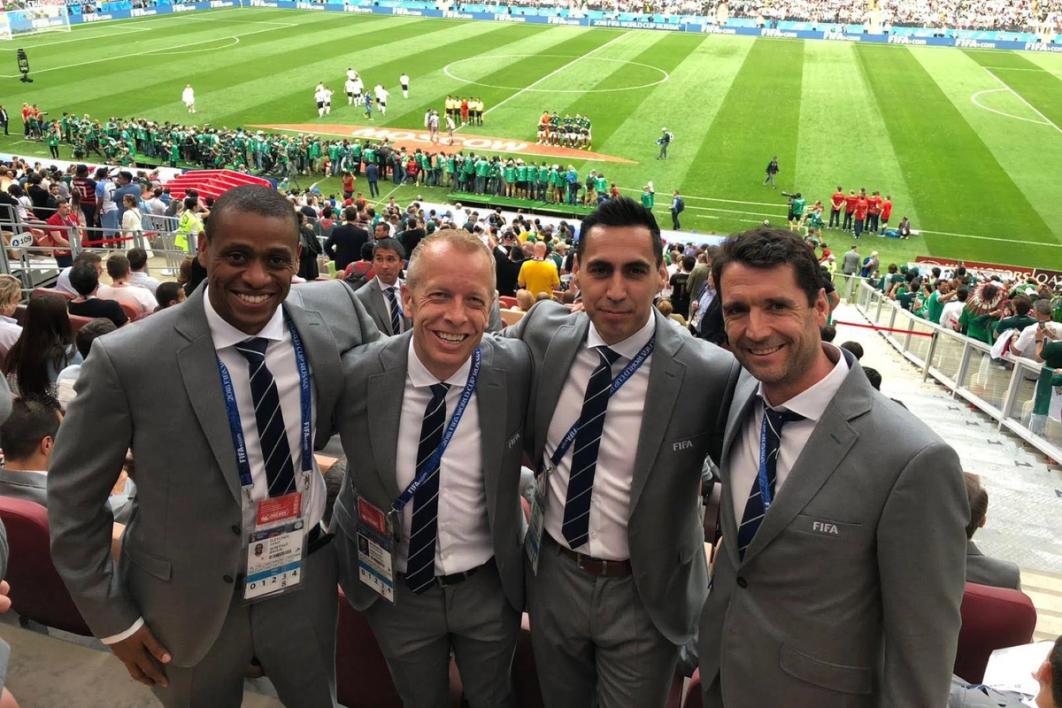
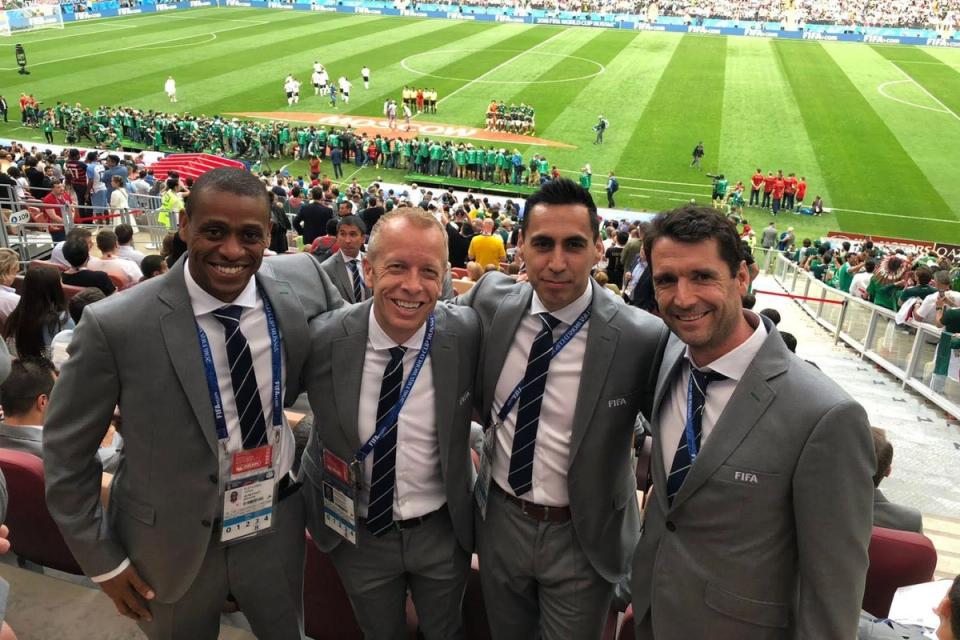
While he will still continue to officiate domestic matches, the year 2023 marked the end of his 17-year tenure on the FIFA Panel. While he knows that one day he’ll also have to retire from officiating top level soccer in the U.S., he believes he’ll still be officiating games well into old age for the love of the game and for the community. He also looks forward to being on the mentoring and assessing side of things for U.S. Soccer where he can help the future generation of officials grow.
He encourages fans of the game to get involved with their local leagues as an official to help with the growth of the game.
“We need those type of people to just be on their local fields refereeing and staying involved and having a great time,” he said. “There was one referee at a tournament my son was playing this past weekend. He was smiling. He was active. You could tell he cared about the kids and the game. And those are the type of people we need to referee out there.”
